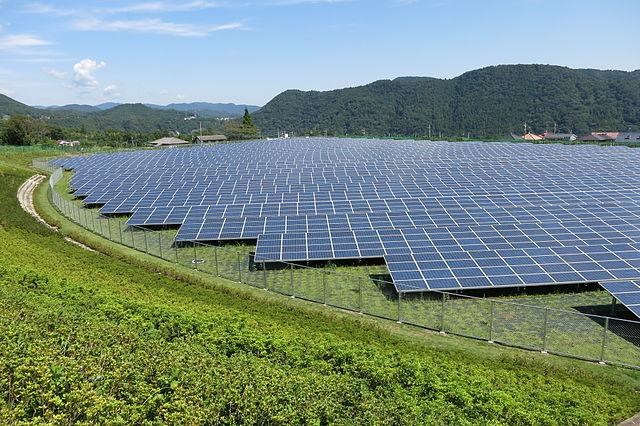
In the aftermath of COP21, we need to shift rapidly to renewables in order to meet the goals set in the Paris Outcome. For some reason, the United Kingdom doesn't want to play along.
One of the reasons that COP21 ended with a stronger-than-expected agreement is that many developed countries stepped up to the plate. We saw strong financial commitments from the United States, Germany, Norway and even China. And we must also credit France, a masterful host, pushing forcefully for an agreement while showcasing its own commitment to renewable energy.
One country that was noticeably quiet was the U.K., whose right-wing government, apparently, wasn't even paying attention to COP21. They were busy gutting their green policies and promoting dirty energy like it was 1950.
In fact, earlier this week, news broke that the U.K. plans to drastically cut solar subsidies. From the Guardian:
"The government has decided to cut subsidies to householders installing rooftop solar panels by 65 percent just days after agreeing to move swiftly to a low-carbon energy future at the climate change conference in Paris."
What makes this even worse is that there was no complimentary move to reduce fossil fuel subsidies, for which the U.K. spends $4.2 billion a year. These fossil fuel subsidies are a major barrier to progress on clean energy as they artificially keep dirty fuel prices low and incentivize people to use more, not less, fuel. Moreover, study after study has shown that the poor – the main reason for many of the subsidies' existence – gain little benefit from them. In fact, the main beneficiaries are the wealthy.
How much are solar subsides capped at now? According to Friends of the Earth, just 35 million British pounds per year (about US$52 million). Even after COP21, the U.K. believes it needs to give fossil fuels eight times more support than solar.
“It’s outrageous that the government continues to hand out billions of pounds in subsidies every year to climate-wrecking fossil fuels, while trying to block the clean energy sources we urgently need to power our homes, hospitals and schools,” said Alasdair Cameron, a Friends of the Earth renewable energy campaigner, in a statement.
Knowing this, you probably shouldn't be surprised that the U.K. is far behind its neighbors France, Italy and Germany in solar. Germany – which has only slightly more solar irradiation than the U.K. – has six times the installed solar capacity, 38,301 megawatts, due to government policies that strongly promote renewables. On a per-capita basis, it's even worse with the U.K. ranking a paltry 15th in the European Union. This is definitely not the time to be cutting subsidies.
Wind is little better, but the U.K. – despite its vast wind resources -- ranks only at 13th in the EU per-capita, lagging, again, behind Germany and Spain.
What the U.K. is pushing forward on is fracking, which recently received government support during COP21.
Thankfully, the British people aren't falling for their government's follies, and are mostly opposed to both fracking and the solar subsidy cut. If we are to meet the goals in the Paris Outcome – goals that U.K. signed on to – then we need to promote renewables and stop the use of fossil fuels. Let's hope that Prime Minister David Cameron comes to his senses soon.
Image credit: Aikira Solar Power Plant via Wikimedia Commons

Nithin Coca is a freelance journalist who focuses on environmental, social, and economic issues around the world, with specific expertise in Southeast Asia.














